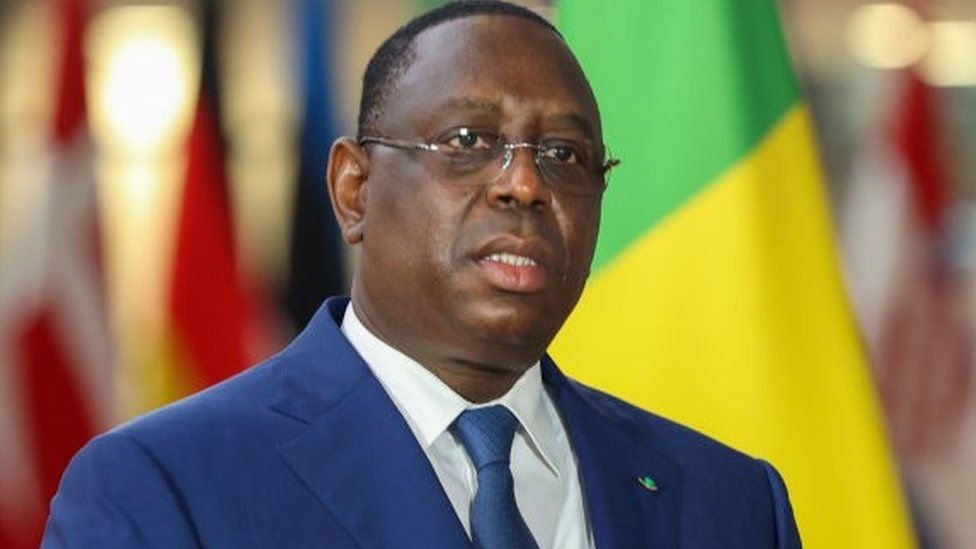Senegal’s capital, Dakar, is witnessing a large gathering of demonstrators calling for prompt presidential elections.
This follows the country’s highest court rejecting President Macky Sall’s bid to delay the originally scheduled election for this month.
President Sall’s recent decree, supported by parliament, has stirred a political crisis in Senegal, a nation previously seen as a stronghold of democracy in West Africa.

On Saturday, opposition supporters held signs demanding a “Free Senegal”.
It is the first rally allowed by authorities since Sall’s announcement two weeks ago.
“Today’s watchword is mobilisation,” said presidential candidate Malick Gakou on the march.
He told the newsmen there was “no room for error any longer” and elections must be organised in March in order for the handover of power between President Sall and his successor on 2 April – when the president’s second term in office is set to expire.
Protesters in Dakar wore T-shirts emblazoned with the words “Protect our election” – named after the collective organisation of religious and civil groups opposed to Mr Sall’s controversial decree.
On February 3, Mr Sall announced he was pushing back the election date – originally scheduled for February 25- because of concerns over the eligibility of opposition candidates.
His proposal was supported by 105 out of the 165 MPs after a fiery debate which saw police remove some opposition MPs from the chamber. A six-month postponement was originally proposed, but a last-minute amendment extended it to 10 months, meaning a new election date of 15 December.
That was until the Constitutional Council stepped in on Thursday, annulling Mr Sall’s decree and voiding the contentious parliamentary bill.
A new date for the elections has not yet been given, but in its ruling the Constitutional Council said the president could not stay in power beyond the end of his term on April 2
The West African body, Ecowas, France and the European Union all urged Mr Sall to comply with the decision. Mr Sall has promised to consult and come up with a revised election date.
But the disputes which led to the postponement in the first place remain unresolved, including allegations of corruption in the Constitutional Council and objections from opposition figures who had been excluded from the candidate list









